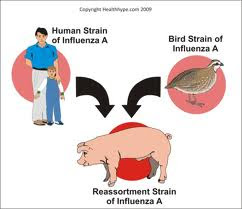A woman from a village in Katol consulted a
doctor from the city for a fever that was not subsiding despite
medications. Being weekend, she could not get screened before two days.
So, the doctor gave her some antibiotics. Three days later, the fever
had subsided. City doctors believe that the number of swine flu victims
with the government may be less than the actual incidence of the
disease. They say the similarity of the symptoms to other viral
infections, the increased immunity against H1N1 and delay in going to the government authorized screening centre are among the reasons for this.Pregnant women urged to have flu jab and whooping cough vaccine.
PUNE: The monsoon season saw a gradual rise in the number of swine flu cases and casualties, with September presenting a grim scenario. While 226 people contracted the H1N1 infection and nine people succumbed to it between June and September, the virus infected 130 people and killed four in September alone.
During Ganesh festival, the district administration and the state health department had categorically asked people to avoid crowded places, in view of H1N1's highly contagious nature. But citizens did not pay heed and moved about without taking any precautions.
"Since the beginning of October, the virus has infected 28 people and killed three, including a pregnant woman. Currently, the condition of four more patients with swine flu, including an eleven-month-old baby, is critical and they are all on ventilator support,
Doctors have attributed the unexpected surge in swine flu cases in Pune this month to wide fluctuations in temperature. Cold nights and hot afternoons help proliferate influenza viruses, they say. More swine flu cases have been recorded in Pune since the start of this month, causing concern to both doctors and the general public.
Since April this year, the virus has claimed 19 lives and infected 391 people. Among the 19 who died of swine flu in Pune city, eight were from outside the municipal limits of Pune city. As many as 130 people contracted the infection and six succumbed to the contagion in April. The virus transmission dropped in May when only six people had caught the infection and there was no casualty.



Post a Comment